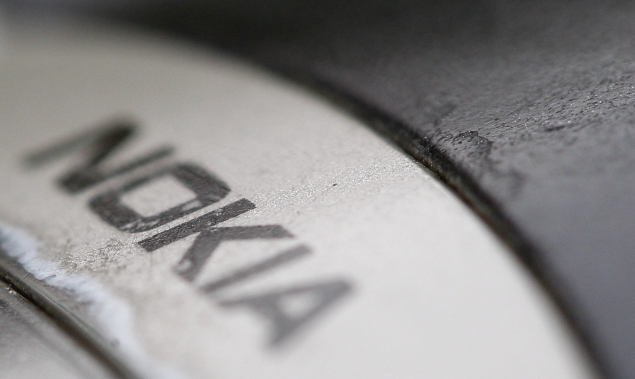- Home
- Mobiles
- Mobiles News
- Nokia wins tribunal ruling against RIM over wireless patents
Nokia wins tribunal ruling against RIM over wireless patents

Announcing that an arbitrator had ruled in its favour, Nokia said: "It found that RIM was in breach of contract and is not entitled to manufacture or sell WLAN products without first agreeing royalties."
Nokia, which is trying to boost its royalty income as its phone business tumbles, said that it had filed cases in the United States, Britain and Canada to enforce the arbitrator's ruling.
"This could have a significant financial impact, as all BlackBerry devices support WLAN, although the volumes are currently very low in these countries," IDC analyst Francisco Jeronimo said.
RIM was not immediately available to comment.
Nokia said it signed a cross-license agreement with RIM covering standards-essential cellular patents in 2003; a deal that was amended in 2008. RIM sought arbitration in 2011, arguing that the licence should be extended to cover WLAN patents.
Nokia, along with Ericsson and Qualcomm, is among the leading patent holders in the wireless industry. Patent royalties generate annual revenue of about 500 million euros for Nokia.
Based on a Nortel patent sale and Google's acquisition of Motorola Mobility, some investors and analysts say that Nokia's patent portfolio alone merits its current share price of 2.50 euros.
However, the patent market has cooled since those deals were made and industry experts say that fair value of patents in large portfolios is $100,000 to $200,000, pricing Nokia's portfolio at up to 0.50 euros per share.
© Thomson Reuters 2012
For the latest tech news and reviews, follow Gadgets 360 on X, Facebook, WhatsApp, Threads and Google News. For the latest videos on gadgets and tech, subscribe to our YouTube channel. If you want to know everything about top influencers, follow our in-house Who'sThat360 on Instagram and YouTube.
Related Stories
- Samsung Galaxy Unpacked 2025
- ChatGPT
- Redmi Note 14 Pro+
- iPhone 16
- Apple Vision Pro
- Oneplus 12
- OnePlus Nord CE 3 Lite 5G
- iPhone 13
- Xiaomi 14 Pro
- Oppo Find N3
- Tecno Spark Go (2023)
- Realme V30
- Best Phones Under 25000
- Samsung Galaxy S24 Series
- Cryptocurrency
- iQoo 12
- Samsung Galaxy S24 Ultra
- Giottus
- Samsung Galaxy Z Flip 5
- Apple 'Scary Fast'
- Housefull 5
- GoPro Hero 12 Black Review
- Invincible Season 2
- JioGlass
- HD Ready TV
- Laptop Under 50000
- Smartwatch Under 10000
- Latest Mobile Phones
- Compare Phones
- Redmi Turbo 4
- Vivo Y200+
- Lava Yuva 2 5G
- OnePlus Ace 5
- OnePlus Ace 5 Pro
- Oppo A5 Pro 5G
- Vivo Y29 5G
- Honor Magic 7 RSR Porsche Design
- Asus Zenbook S 14
- MacBook Pro 16-inch (M4 Max, 2024)
- Honor Pad X9 Pro
- Honor Pad V9
- boAt Enigma Gem
- boAt Enigma Daze
- Sony 65 Inches Ultra HD (4K) LED Smart TV (KD-65X74L)
- TCL 55 Inches Ultra HD (4K) LED Smart TV (55C61B)
- Sony PlayStation 5 Pro
- Sony PlayStation 5 Slim Digital Edition
- Blue Star 1.5 Ton 3 Star Inverter Split AC (IC318DNUHC)
- Blue Star 1.5 Ton 3 Star Inverter Split AC (IA318VKU)
















